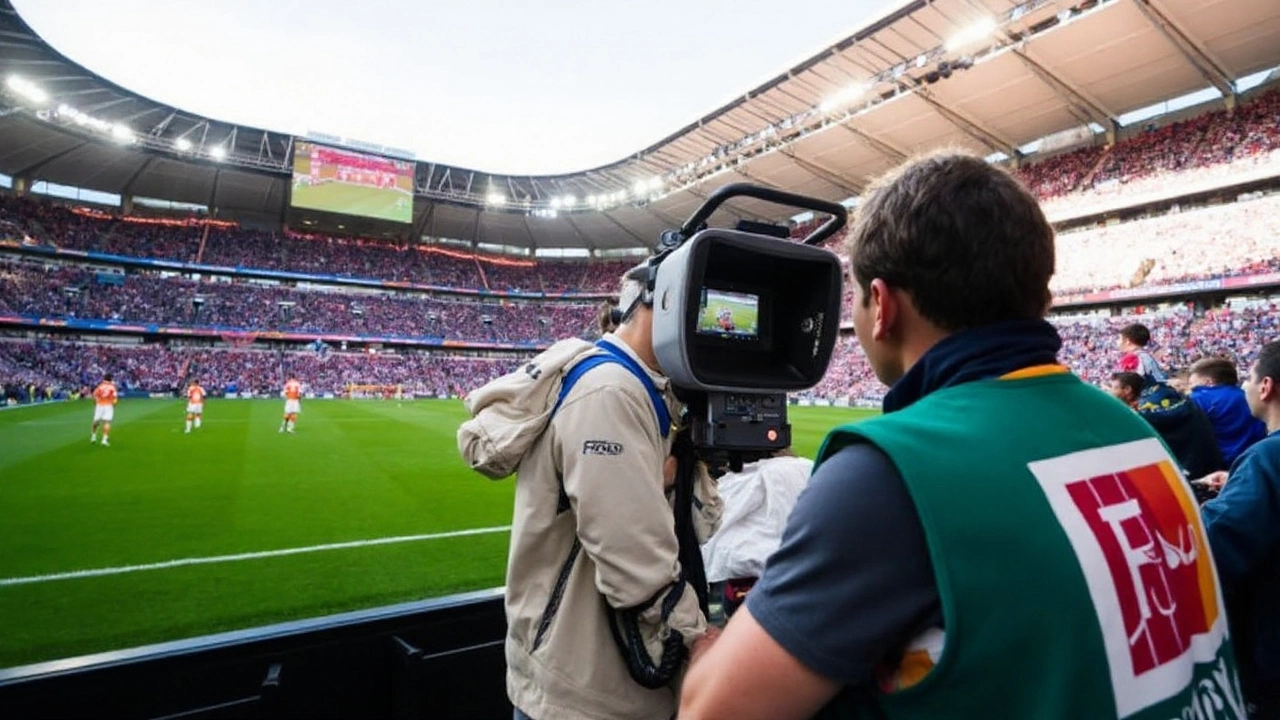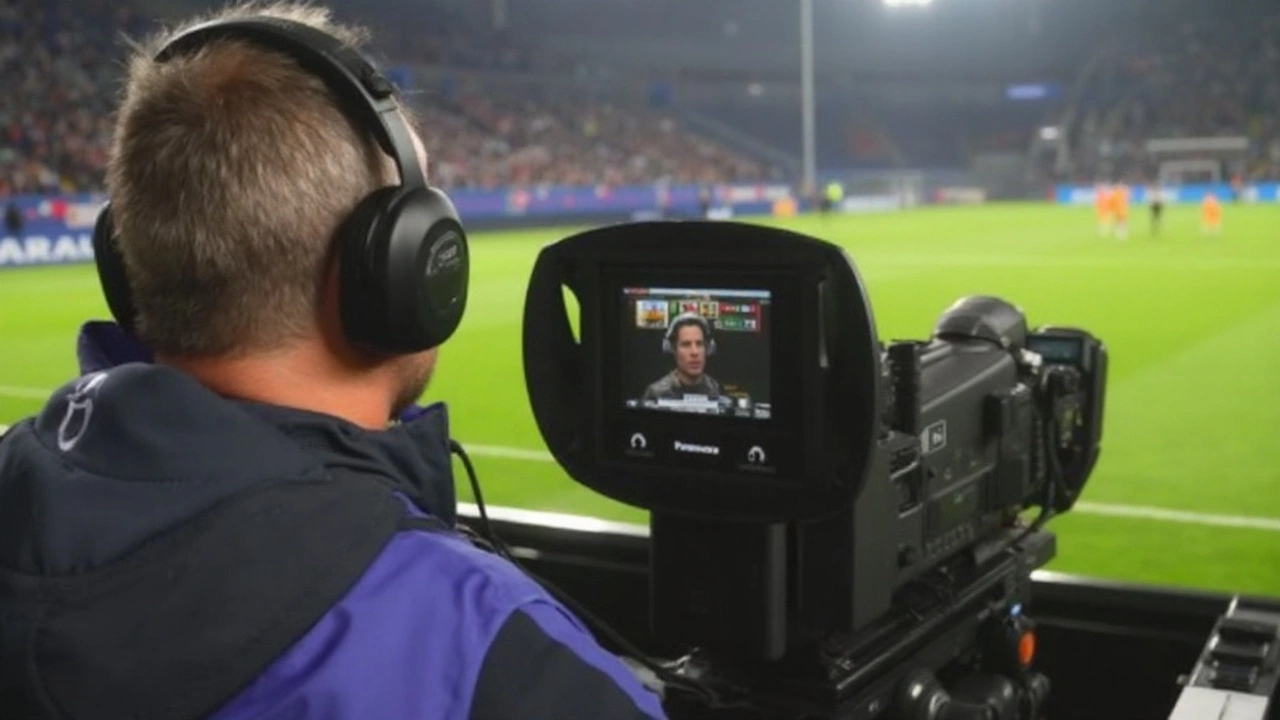The world’s most visited illegal live-sports site has gone dark. After a year-long investigation, Egyptian authorities working with the Alliance for Creativity and Entertainment (ACE) shuttered Streameast, a sprawling operation that pushed unauthorized feeds of the NFL, Premier League, NBA, pay-per-view boxing, and Formula 1 to hundreds of millions of visits every month. The timing isn’t accidental—this move lands right before the NFL regular season kicks off, when illicit traffic typically surges.
Police carried out coordinated raids roughly 20 miles outside Cairo, arresting two men on suspicion of large-scale copyright infringement. Investigators seized laptops, smartphones, cash, and credit cards they say were tied to the site’s operations. In parallel, a web of about 80 associated domains was taken over. If you try to visit one now, you’re redirected to ACE’s page that lists legal streaming options.
How the operation unfolded
This wasn’t a one-country job. ACE—an anti-piracy coalition backed by media and tech heavyweights, including Amazon, Netflix, and Disney—says it worked hand-in-glove with Egyptian law enforcement while getting support from Europol, the U.S. Department of Justice, the Office of the U.S. Trade Representative, and the U.S. National Intellectual Property Rights Coordination Center. In simple terms: a cross-border, multi-agency push aimed squarely at the biggest live-sports piracy target on the map.
By the numbers, the scale was staggering:
- 80 domains tied to the network
- 1.6 billion visits in the last year
- Average of 136 million monthly visitors
- Primary audiences in the U.S., Canada, the U.K., the Philippines, and Germany
- $6.2 million generated through advertising
- $200,000 traced to cryptocurrency holdings
Investigators also say they identified a shell company used to wash ad income and other proceeds. Some of that money, they allege, went into Egyptian real estate. That’s part of why law enforcement moved on physical locations, not just domain names. Follow the money, seize the assets, and disable the infrastructure.
ACE’s chairman, Charles Rivkin—who also heads the Motion Picture Association—called it a landmark strike. “Today, ACE scored a resounding victory in its fight to detect, deter, and dismantle criminal perpetrators of digital piracy by taking down the largest illegal live sports platform anywhere,” he said. He framed it as a win for leagues and fans alike, promising the group will “stay on the field as long as it takes” to hit the biggest piracy rings.
How did Streameast work? Think of it as a constantly moving target. It pulled in feeds—often scraped or restreamed from legitimate sources—then pushed them through embedded players on domains that changed frequently to outrun blocks and takedowns. When one address was flagged, another popped up. Advertising kept it profitable, and the pitch to users was simple: free sports, instant access, no login required.
The network’s playbook wasn’t unique, but its execution and reach were. Traffic spiked around major events—boxing title fights, Premier League weekends, F1 Sundays, NFL primetime. The more exclusive the rights and the higher the paywall, the bigger the demand for a “free” feed. That audience scale explains the money: programmatic ad placements, pop-ups, and affiliate links can add up fast when you’re serving millions of viewers per matchday.

Why this takedown matters
Live sports piracy is different from movie or TV piracy. If a feed is down during the match, it’s worthless. That creates a frantic cat-and-mouse game: pirates shuffle domains and mirrors; leagues and rights holders push for real-time blocking orders and rapid takedowns. By cutting off a dominant distributor before a peak season, authorities increase the friction for would-be viewers and reduce illicit ad revenue when it matters most.
There’s also the fan factor. Sports subscriptions have become a patchwork—different leagues on different platforms, regional blackouts, and multiple monthly fees. That fragmentation drives some users to illegal sites. The shutdown of a top-tier piracy hub won’t fix that frustration overnight. But it raises the cost of casual piracy: more broken links, more scammy pop-ups, and more time wasted hunting for a working stream.
The enforcement blueprint here blends technical, legal, and financial pressure. On the technical side, seizing domains and servers interrupts the delivery chain. On the legal side, copyright and anti-money-laundering laws give authorities room to pursue operators and freeze assets. And on the financial side, cutting off ad networks and redirecting users to legitimate services shrinks the market pirates feed on.
For leagues, this is about protecting eye-watering rights deals. Broadcasters and streamers pay billions for exclusivity. If millions watch free elsewhere, it undercuts the value of those deals, dents subscriber growth, and weakens negotiating leverage next cycle. That’s why you see sports bodies invest in anti-piracy teams and push courts for “dynamic blocking” powers that can be triggered in real time as new domains appear mid-match.
For the ad industry, there’s another angle. Piracy sites are a magnet for malvertising—fake “play” buttons, browser extension prompts, and malware-laced pop-unders. When law enforcement knocks out a major node, the ripple hits shady brokers and arbitrage chains that rely on huge, low-cost impressions. Brand-safety teams will welcome the drop in risk, even if some of that inventory simply migrates to smaller, harder-to-track sites.
What happens next? A wave of imitators and impostors usually try to capitalize on the name recognition. Don’t be surprised if clones surface with similar branding or if social media fills up with “working links.” Traffic after a takedown tends to fragment: some users give up, some pay for a legitimate option, and others bounce between short-lived domains. The difference here is scale. Disabling the largest node makes the rest of the ecosystem more brittle and less reliable.
Legally, the immediate outcomes are clear: arrests, seizures, and domain control. The longer arc—prosecutions, potential cooperation deals, asset forfeitures—will play out in Egyptian courts and through ongoing cooperation with international partners. If additional individuals or infrastructure are tied to the network, more actions could follow.
For viewers, a few practical points:
- If a site that used to work now redirects to a page listing legal options, that’s intentional, not an error.
- Be cautious of copycat domains and social accounts claiming “official new links.” They often deliver spyware, not sports.
- Legitimate services sometimes run free trials or low-cost monthly plans for specific leagues—worth checking during season openers.
- Devices used to visit piracy sites can carry risk. If you’ve installed unknown extensions or accepted suspicious permissions, remove them and run security scans.
This takedown also lands in a shifting market. Streamers are experimenting with bundles, ad-supported tiers, and flexible passes to reduce sticker shock for sports. Rights holders know that convenience beats enforcement alone. The legal offer has to be simple, affordable, and reliable, or people will keep looking for shortcuts. Still, enforcement matters because it changes the equation: when illegal options become unreliable, the legal ones start to look a lot more attractive.
One more piece often overlooked: infrastructure. Operations like this lean on content-delivery networks, offshore hosting, and reverse proxies to mask origins and absorb traffic spikes. They also rely on constant domain churn and search-engine discoverability. Turning off the lights means not just seizing a homepage, but mapping the entire web of alternates and coordinating with ad-tech firms and infrastructure providers that may have been unwittingly enabling scale. That’s why multi-agency, cross-border work is essential.
Could the ecosystem bounce back? Parts of it, sure. Piracy is persistent. But taking down a centerpiece has an outsized effect. It disrupts established habits—those bookmarks and Reddit threads people use every week—and forces casual users to reassess. For frequent viewers, the next couple of weekends will be the real test. If reliable alternatives don’t pop up quickly, attrition sets in.
ACE says it will keep pressing. Law enforcement partners, now with a clearer map of how this operation ran and where the money flowed, have momentum. And with the NFL, European soccer, NBA preseason, and marquee fights all clustering on the calendar, the message to piracy operators is blunt: the window to cash in is closing.
For fans who want the easiest route on game day, the path is boring but effective: a verified provider, a stable stream, and no panic five minutes before kickoff. After this week’s raids, that’s by design.
